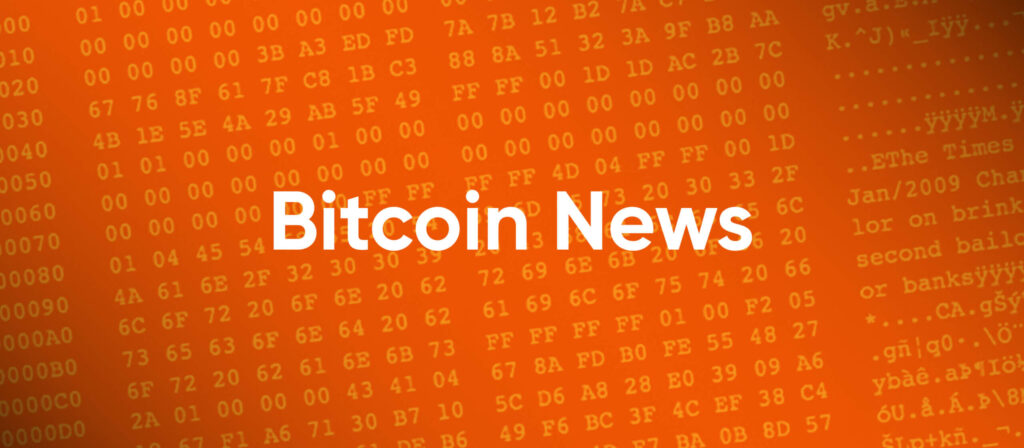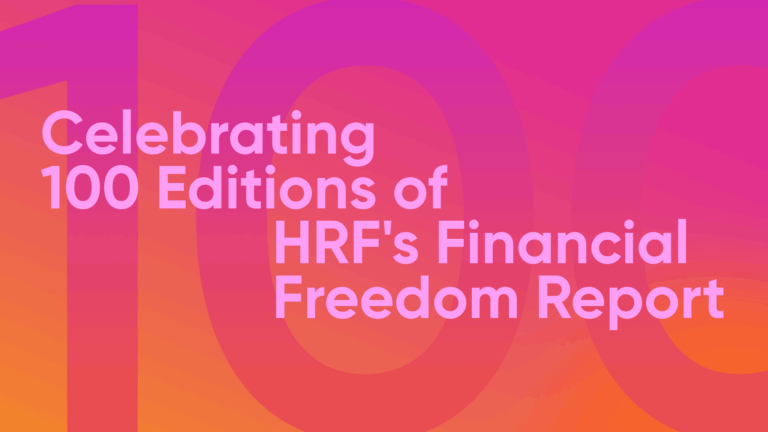The Financial Freedom Report is a newsletter focusing on how currency plays a key role in the civil liberties and human rights struggles of those living under authoritarian regimes. We also spotlight new tools and applications that can help individuals protect their financial freedom.
Good morning, readers!
Welcome to 2025! As the year begins, authoritarian regimes have swiftly escalated financial repression, intensifying efforts to dismantle civil society, undermine due process, and suppress dissent.
In Nicaragua, dictator Daniel Ortega advanced financial reforms that would restructure how the country’s central bank and financial institutions operate. The law empowers officials with extensive access to private financial data, the ability to monitor and restrict cross-border flows, and the capacity to deploy law enforcement on those who resist. These measures aim to trap capital in the country and ensure all economic activity aligns with regime interests while enforcing financial control over individuals and civil society.
Across the Pacific, the Chinese Communist Party (CCP) is actively monitoring and censoring economists whose public comments diverge from state interests and narratives, threatening termination of employment if not compliant. This appears to be an attempt to enforce a single economic narrative that aligns with the CCP’s agenda and “bolsters” investor confidence in the flailing Chinese economy.
In technology news, Live Wallet, a desktop app that helps users analyze their Bitcoin unspent transaction outputs (UTXOs), launched a transaction privacy analysis feature. This enables users to assess the degree of privacy in a given transaction, which is vital for those operating under the financial surveillance of authoritarian regimes. Additionally, the Bull Bitcoin mobile wallet implemented asynchronous Payjoins without a server, providing users with a more convenient and accessible way to make private transactions with less need for coordination.
We end with an enlightening conversation between Bitcoin educators Anita Posch and Lorraine Marcel, founder of Bitcoin Dada, discussing the empowering nature of Bitcoin for women who face systemic rights abuses and financial repression. We also feature an article from the Bitcoin Policy Institute (BPI) examining the vitality of privacy in public spaces and emphasizing the importance of Bitcoin’s pseudonymous nature in fostering transactional freedom.
Now, let’s jump right in!

Nicaragua | Financial Reforms Risk Enshrining Repression Into Law
Nicaraguan dictator Daniel Ortega has proposed financial reforms, granting the nation’s central bank more power while placing private financial institutions under greater state control. The law would restructure how the Central Bank of Nicaragua (BCN) and the Superintendency of Banks and Other Financial Institutions (SIBOIF) operate, making them overseen by a shared board of directors chaired by current BCN president Ovidio Reyes. This proposal would empower officials with access to citizens’ and companies’ private financial data and increase their ability to monitor cross-border transactions to identify those moving funds out of the country. It further stipulates the ability to dismiss financial executives, directors, and auditors without cause and deploy law enforcement against non-compliant individuals. These measures risk enshrining financial repression into law, leaving citizens subject to financial monitoring and control.
China | Regime Monitoring and Censoring Economists
The CCP is tightening control over economic discourse, targeting economists with views diverging from state narratives. This follows a directive from the Securities Association of China (SAC), which urged chief economists at brokerages to align their public statements with government policies and focus on “bolstering” investor confidence. Companies have been instructed to take strict action against “inappropriate commentaries or behaviors,” including termination if it results in “major negative impacts.” This move aims to consolidate the state’s economic messaging and muzzle independent views to ensure a single narrative that aligns with the CCP’s agenda.
Iran | Shutters Onramps to Digital Asset Exchanges
The Iranian government is shutting down the onramps to digital asset exchanges, confining citizens in the nation’s collapsing currency. This comes after the Iranian rial lost 37% of its value against the US dollar in 2024, prompting many Iranians to turn to digital assets like Bitcoin. Before this recent shutdown, Iran froze the bank accounts of digital asset exchanges to prevent capital flight. The regime also suspended payment processing services under the pretense of money laundering. For Iranians enduring severe inflation, financial repression, and an isolated economy, Bitcoin represents one of the few remaining paths to financial freedom — a path the regime is now working to block.
Sudan | Replaces Banknotes Amid Civil War
Sudan is replacing its old banknotes with new 1,000- and 500-pound notes through a currency replacement program. Citizens are urged to deposit old notes at banks for new ones. However, the ongoing conflict between the Sudanese Armed Forces (SAF) and the paramilitary Rapid Support Forces (RSF) is complicating matters. In RSF-held areas, the new currency has been declared illegal. This has left locals unable to exchange their old notes and facing the risk of losing their savings. Meanwhile, withdrawal limits, high fees, and inadequate banking access hinder citizens from exchanging their old notes in SAF-controlled regions. This currency replacement program is exacerbating financial exclusion and exposing the perils of centralized currency in conflict zones.
Russia | War Expenditures Driving Inflation
Russia’s escalating war spending is fueling inflation and deepening financial hardships for its citizens. Housing costs have surged 30% since Vladimir Putin’s invasion of Ukraine, and mortgage rates have followed, making homeownership increasingly unattainable for many. Meanwhile, a weakening ruble is quickly eroding family savings across the country. These disparities reveal the state’s failure to balance priorities, leaving Russians at the mercy of state policies and a deteriorating economy as the regime prioritizes its geopolitical offense. Citizens who never had a democratic choice to go to war are forced to pay the consequences.
Cambodia | Approves Stablecoins While Bitcoin Remains Banned
The National Bank of Cambodia now permits financial institutions to offer services using “qualifying” stablecoins (a digital currency pegged to a fiat currency) despite maintaining a nationwide ban on Bitcoin. This directive seeks to better regulate digital asset operations, with stablecoins being a focal point, likely due to their centralized nature and easier oversight. This comes after Cambodia’s government recently blocked 16 digital asset exchanges. Concerns over the regime’s ability to monitor and control stablecoins are amplified by cases like Tether previously (USDT) freezing accounts in the country. Additionally, by permitting stablecoins over Bitcoin, these regulations may serve to protect the Bakong, Cambodia’s central bank digital currency (CBDC), from greater digital currency competition, particularly in domestic payments.

Live Wallet | Releases Transaction Privacy Analysis
Live Wallet, a desktop app that helps users analyze their unspent transaction outputs (UTXOs), just released a feature enabling users to assess the privacy of their Bitcoin transactions. With the release, users can now gauge the degree of privacy in a given transaction and label them accordingly. To do so, Live Wallet analyzes transactions for factors such as connection to other bitcoin addresses, amount of bitcoin in the wallets used, reuse of the same bitcoin address, and more. This feature will help human rights defenders and dissidents to better protect their financial privacy while operating in countries ruled by authoritarian regimes.
Bull Bitcoin Wallet | Implements Serverless Asynchronous Payjoin
Bull Bitcoin Wallet, an open-source and self-custodial Bitcoin wallet for Android, became the first mobile Bitcoin wallet to allow users to send and receive asynchronous Payjoin transactions without running their own server. Payjoin is a privacy-enhancing technique for Bitcoin transactions, where both the sender and receiver contribute inputs to the transaction, making it more difficult to ascertain who the payer and payee are. Implementing asynchronous Payjoin in its mobile wallet means users can now conduct Payjoins even if one party is not actively online to participate in the transaction. This provides users with a more convenient and accessible way to make private transactions with less need for coordination.
RaspiBlitz | Integrates Alby Hub
RaspiBlitz, an open-source project enabling users to run a Bitcoin and Lightning Network node on a Raspberry Pi, introduced an Alby Hub integration. With this update, individuals can use Raspberry Pis (a small, low-cost computer) to host Alby Hub, a self-custodial, open-source Lightning wallet that easily connects to freedom tech apps like Nostr clients. A popular use for Alby Hub is to make micropayments on the decentralized, censorship-resistant protocol Nostr. HRF is proud to see the integration of self-custodial tools from this past HRF grantee.
Blockstream | Introduces Jade Plus Signing Device
Blockstream, a company developing Bitcoin technology and software, released a new version of its Jade hardware wallet, the Jade Plus. Hardware wallets are devices that allow users to securely transact and custody their Bitcoin while keeping the private key offline. Jade Plus features a larger, brighter display, an enhanced camera for scanning QR codes, and offline firmware updates. The device is also capable of fully air-gapped (disconnected from the Internet) transactions. These improvements will make it easier for non-technical users to securely self-custody their Bitcoin. You can view it here.
Zapstore | Adds Ability to “Zap” App Developers
Zapstore, a decentralized and censorship-proof app store built on the Nostr protocol, recently added the ability to “Zap” (a bitcoin micropayment) app developers via the Lightning Network. With Zapstore, developers can publish and “sign” their application in a permissionless manner to the open-source Nostr protocol, making it available for everyone to use. Rather than relying on a centralized app store (such as Google Play) to verify the legitimacy of a developer and their app, users can use their “web of trust” to view which users follow and “endorse” the app developer. By adding the functionality to Zap, Zapstore lets users support developers building decentralized and censorship-resistant tools for those living in countries ruled by authoritarian regimes.
Mi Primer Bitcoin | Launches Community Hub
Mi Primer Bitcoin, a nonprofit advancing open-source Bitcoin education, launched a Community Hub, a new platform to support independent Bitcoin Educators. The hub includes two main components: a wiki to provide educators with information and educational resources, and a forum where educators can meet and collaborate to enhance their operations and curriculum. As Mi Primer Bitcoin’s course gets more widely used by communities and educators in autocratic countries, these new resources are sure to benefit those in need for better information about financial freedom.
RECOMMENDED CONTENT
How Bitcoin is Changing Lives for Women in Kenya with Bitcoin Dada
In this interview, Bitcoin educator Anita Posch interviews Lorraine Marcel, the founder of Bitcoin Dada, a women-focused Bitcoin education program in Kenya. They discuss how Bitcoin can empower and uplift women in Africa and beyond, especially those who lack fundamental rights and face financial discrimination. Marcel believes Bitcoin offers a path to financial independence and freedom by breaking social barriers and offering an inclusive, nondiscriminatory technology that empowers women. Watch the full conversation here.
Privacy in Public by Bradley Rettler, Andrew Bailey, and Craig Warmke
In this three-part series for the Bitcoin Policy Institute, philosophers Bradley Rettler, Andrew Bailey, and Craig Warmke discuss the idea of privacy in public spaces. The authors argue that privacy is more than just a personal right but also a vital public good. Further, they examine how Bitcoin’s pseudonymity fosters freedom, allowing individuals to engage in financial and social interactions without fear of surveillance or coercion. The series presents a thought-provoking case for why preserving privacy is a defining cornerstone of a free and open society. You can read part 1, part 2, and part 3 here.
– If this email was forwarded to you and you enjoyed reading it, please consider subscribing to the Financial Freedom Report here.
– Support the newsletter by donating bitcoin to HRF’s Financial Freedom program via BTCPay.
– Want to contribute to the newsletter? Submit tips, stories, news, and ideas by emailing [email protected].
– The Bitcoin Development Fund (BDF) is accepting grant proposals on an ongoing basis. The Bitcoin Development Fund is looking to support Bitcoin developers, community builders, and educators. Submit proposals here.








